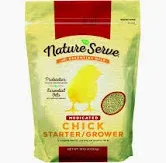
Set . 18, 2024 18:08 Back to list
coccidiosis in chick supplier
Understanding Coccidiosis in Chickens A Guide for Suppliers
Coccidiosis is a significant health concern in poultry, particularly among chicks. It is caused by protozoan parasites from the genus Eimeria, which infect the intestinal tract of chickens and can lead to severe health issues, impacting their growth and productivity. For suppliers of chicks, understanding coccidiosis and its implications is critical not only for the health of the birds but also for the sustainability of poultry farming.
What Causes Coccidiosis?
Coccidiosis is primarily caused by the ingestion of oocysts, which are the egg-like forms of Eimeria. These oocysts can survive in the environment for long periods, making control and prevention challenging. Chickens become infected when they consume feed or water contaminated with these oocysts. Factors such as overcrowding, poor sanitation, and stress can exacerbate the spread of the disease, making it essential for suppliers to ensure proper management practices in their operations.
Symptoms of Coccidiosis
The symptoms of coccidiosis can vary depending on the severity of the infection and the specific Eimeria species involved. Common signs include
- Diarrhea that may be bloody - Weight loss - Dehydration - Lethargy - Decreased feed intake - Poor growth rates
In severe cases, coccidiosis can lead to high mortality rates among the affected chicks. Early detection and prompt treatment are crucial to minimize losses.
coccidiosis in chick supplier

Prevention and Management Strategies
1. Biosecurity Measures Suppliers should implement strict biosecurity protocols, including limiting access to poultry facilities and maintaining cleanliness to reduce the risk of contamination. Regular cleaning and disinfection of equipment, housing, and feeding areas can significantly lower the presence of oocysts.
2. Proper Nutrition Ensuring chicks receive a balanced diet rich in vitamins and minerals can enhance their immune response, making them less susceptible to infections. Suppliers should work closely with nutritionists to formulate feeds that support the overall health of the chickens.
3. Use of Coccidiostats Incorporating coccidiostats in the chicks' diet can help control Eimeria populations. These medications help reduce the severity of the disease and can be particularly beneficial during the early stages of life when chicks are most vulnerable.
4. Monitoring and Surveillance Regular health monitoring can aid in the early detection of coccidiosis outbreaks. Suppliers should be proactive in observing behavior and overall health, with a quick response plan in place for suspected cases.
5. Vaccination Although not universally adopted, live coccidiosis vaccines can provide effective protection in some flocks. Suppliers may consider this option depending on their specific operational needs and challenges.
Conclusion
In conclusion, coccidiosis represents a considerable threat to chick health and overall poultry production. For suppliers, understanding the causes, symptoms, and prevention strategies is vital to maintaining the wellbeing of their birds and ensuring the success of their operations. By adopting comprehensive management practices and staying informed about best practices, suppliers can mitigate the impact of coccidiosis, ultimately benefiting the entire poultry industry. Educating buyers and farmers about these issues can further enhance the health and productivity of flocks, fostering a sustainable future for poultry farming.
-
China Salivation AI with GPT-4 Turbo Features
NewsAug.01,2025
-
Epic Sepsis Factories: AI-Driven Detection with GPT-4 Turbo
NewsJul.31,2025
-
Acute Salpingitis and Oophoritis AI Factory
NewsJul.31,2025
-
Premium China Bacillus Subtilis Supplier & Factory Solutions
NewsJul.30,2025
-
Premium Avermectin Supplier in China | Custom Solutions Available
NewsJul.29,2025
-
China Bacillus Subtilis Supplier - Custom Factory Solutions
NewsJul.29,2025




